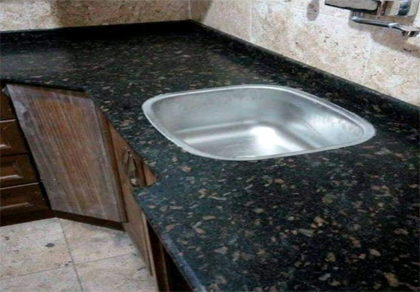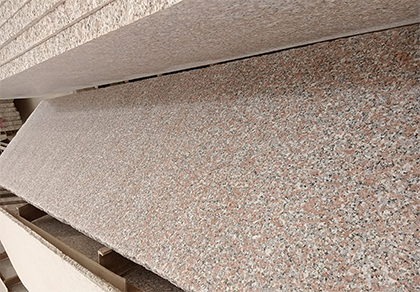Quartz stone is available in a wide range of colors and patterns, from solid colors to marble-like veining and speckled patterns. The pigments used to color the material can create a variety of effects, from subtle to bold. Furthermore, quartz can be customized to fit specific design requirements. It can be cut to any size and shape and can be molded to create unique designs and features.
One of the primary advantages of quartz over natural stone such as granite and marble is its uniformity in color and pattern, which makes it easier to match across multiple slabs. Additionally, quartz stone is highly resistant to scratches, stains, and heat, making it a practical and low-maintenance choice for high-traffic areas. It is also non-porous, which means that it doesn’t absorb liquids and is less likely to harbor bacteria, making it a hygienic choice for kitchen and bathroom surfaces.
Quartz stone comes in a range of thicknesses, typically ranging from 1.2 cm to 3 cm, with thicker slabs being more durable and providing a more substantial look. It is important to note that while quartz stone is highly durable, it should be protected from direct heat sources such as hot pots and pans, as prolonged exposure to high temperatures can cause damage.
Overall, quartz stone is a reliable and attractive material that provides a practical and stylish solution for a variety of interior design applications.
The Properties of Quartz Stone:
Quartz stone is a mineral that has many properties, including:
Hardness: Quartz stone is one of the hardest minerals on earth, with a hardness rating of 7 on the Mohs scale (which measures the hardness of minerals from 1 to 10). This makes it an extremely durable and long-lasting material, resistant to scratches and chips.
Density: Quartz is a dense material, which makes it resistant to staining and water absorption. This property also makes it ideal for use in kitchen and bathroom countertops, as it is less likely to absorb spills or moisture.
Color: Quartz stone comes in a wide range of colors and patterns, from subtle shades of white and gray to bold, vibrant hues. This makes it a versatile material that can be used in a variety of design applications.
Heat resistance: Quartz stone is highly heat-resistant, making it ideal for use in kitchen countertops and other areas where heat is a concern. It can withstand temperatures of up to 300 degrees Fahrenheit without cracking or discoloring.
Chemical resistance: Quartz is resistant to many chemicals, including acids and alkalis. This makes it a popular choice for laboratory countertops and other chemical-resistant applications.
Overall, quartz stone is a durable, versatile, and attractive material that is well-suited for a wide range of applications. Its properties make it an excellent choice for use in countertops, flooring, and other surfaces that require strength, durability, and aesthetic appeal.
You may also like ..







